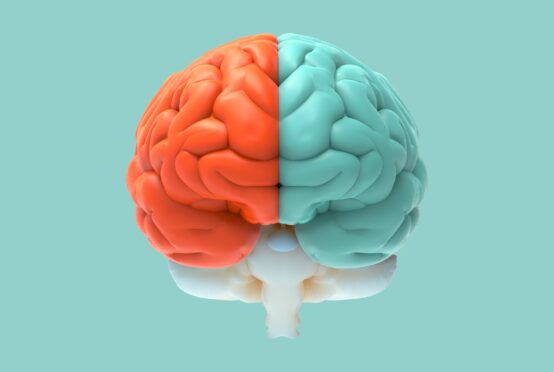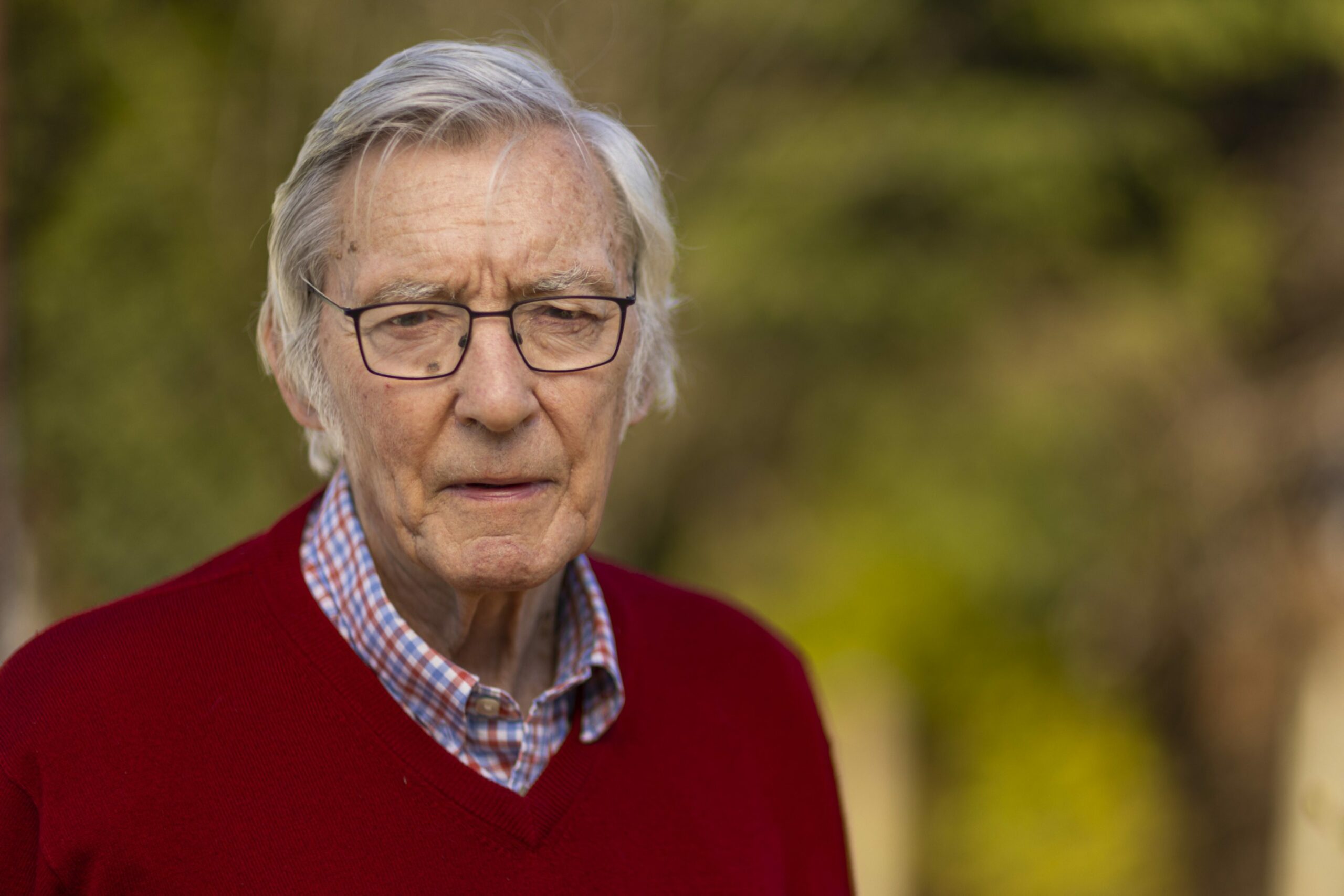
Some of us are absent-minded and forgetful in our 20s, others are still racing through cryptic crosswords well into our 80s.
Age does not wither the mental acuity of many older people while much younger counterparts will regularly climb to the top of stairs then struggle to remember why.
How and why brain power is kept or lost as the years go by is being scrutinised by scientists in century-spanning research based on the Lothian Birth Cohort (LBC), a group of children born in 1921 who went on to sit a test, the Scottish Mental Survey, 11 years later. A second group, born in 1936, took the same test at 11 in 1947.
The results were discovered years later by Professor Ian Deary at Edinburgh University and used as a baseline to research cognitive ageing. By then, when the 1921 participants were 77, they were invited to take the same test from 1932. For over 20 years, many of them continued to help the researchers with their quest for secrets of healthy life in older age. Five years later, people born in 1936 who took the test in 1947 were invited to do the same.
Together they have helped compile one of the greatest brain-ageing data sets in the world. Dr Simon Cox, current director of LBC, said: “It’s a wonderful study. We are mostly interested in the psychological phenomenon of cognitive ageing, really why some people age cognitively more steeply than others. Some people keep their thinking skills really well, and others don’t. What we’re looking at is what differentiates people who do age well from those who don’t.”
Cox took over directorship from Deary in the midst of Covid, but has been working with LBC for about 10 years ago, since he joined while studying for his PhD.
“Luckily we have now secured funding to cover the ongoing Sixth Wave, and also conduct a Seventh Wave. By that stage we will have tested these participants every three years or so for nearly two decades and it’s a really important period of life where risks for cognitive decline and dementia start to increase sharply.
“Cognitive ageing doesn’t take place in a vacuum, and part of the study’s success has been in recognising that. There are lots of other things that can change with ageing – for example, brains, physical ageing and quality of life. There are lots of other aspects to ageing.
“Keeping your cognitive functioning in older age is important for lots of things in everyday life, living independently, being susceptible to financial scams and it can herald illness, dementia and death. If you go to the doctor and say you think you are shrinking, the doctor would ask how tall you used to be.
“With cognitive ageing, Deary realised researchers were often just taking a snapshot. They couldn’t know whether average performers in older age had always been average performers, or whether (and how much) they had declined cognitively. Were they previously high performers or were they not?”
LBC invites participants back every three years to go through a series of tests, from putting things into sequence to walking down a corridor.
“The tests look at not just thinking skills but we do genetic tests, brain scans, take blood samples, look at physical functioning and conduct lifestyle questionnaires,” said Cox.
The results, according to Cox, confirm age is not the only factor that can affect our brains.
“Across the life course, the differences between people remain relatively stable. In general, people who are relatively good performers when they were 11 tend to be still good performers to a degree at a much older age.”
Sadly the research has shown no one thing can help our brains stay young. “There’s no silver bullet, no one single thing/factor that will absolutely stop cognitive ageing,” said Cox.
“There are marginal gains in ageing with a large number of factors like diet, complexity of jobs, BMI, smoking, keeping fit, intellectual activity and things like bilingualism too.
“Looking after ourselves in these ways isn’t only good for our brains but our bodies and general health. So knowing these small tweaks to our lifestyle might make a difference to our cognitive ageing is probably an added incentive.
“Things like vascular risk factors; if you have diabetes, if you smoke, if you have a high BMI or cardiovascular disease – these things seem to be very modestly related to poor mind in older age and more steep changes in cognitive ageing.”
Another interesting find is that experiencing cognitive and brain ageing in early older age isn’t inevitable. “If you look at some brain scans, you can see damage to the white matter,” said Cox. “These are connections that link different parts of the brain together.
“White matter damage is a hallmark of ageing – prevalent in older individuals and a risk factor for things like cognitive decline and dementia. In the LBC studies, all people were the same age when being scanned, yet some people’s brains were like that of a 30-year-old when it came to white matter damage, whereas other brains would not have looked out of place in a dementia cohort.
“So seeing this huge variability on cognitive scores and brain scans makes us ask: How do you end up getting to your 70s and look at the brain that’s relatively pristine and how do you avoid a brain with lots of white matter damage?
“These are the questions that we have been, and continue, to look at.”
Cox hailed the participants for making the important research possible. “It’s a huge commitment. Some of the cognitive tests are four or five hours long and then they have to wait for MRI scans. It’s not an inconsiderable undertaking.
“We can’t articulate enough just how grateful we are to the participants that they keep coming back. It’s as much their study as it is ours and our successes are their successes too.”
Tours detailing the history of the Lothian Birth Cohort are running as part of Edinburgh Science Festival, April 9-24. sciencefestival.co.uk
‘It’s good fun, a bit like an MOT. I like to test myself’
Hamish Coghill has been involved with the 1936 Cohort for 18 years and looks forward to his regular mental MOT.
The 85-year-old retired journalist, from Edinburgh, remembers receiving a letter almost two decades ago asking if he would consider taking part and said he had no qualms as he already knew of the research and its worth.
“I was delighted to be asked because I think it’s a very important project,” said Coghill.
“People are living much longer now so if I can do something that helps people have a better life, I’m happy about that.”
Coghill looks forward to the Cohort tests every few years. “It’s a bit like an MOT,” he said. “I get a medical which checks everything from my sight and hearing to blood and mobility. Then I sit a series of tests for mental ability and agility.
“There are memory tests and sequence tests, computer tests. I love it because I quite like a challenge. It’s good fun. It has never been onerous. It’s nice to test myself. I’ve sat the original 1947 test we did when we were 11 twice and I’m glad to say I got better results both times!
“I’m always happy to do it because not only does it help the research but it lets me see how I’m faring as well. I don’t feel my brain is ageing. I’m still active physically and out walking all the time. I usually have two books on the go and my weekly challenge is the Times Jumbo Crossword on a Saturday.”
Coghill, who lost his wife, Mary, 18 months ago, added: “I try to keep busy. I have challenged myself to walk in every public space in Edinburgh and take my dogs up the Pentland Hills. I’m a member of the local history society and read a lot.
“Life changed when my wife fell ill and I was busy looking after her, but I’m starting to pick things up again. I’m a great believer in that we’ve got to keep going. We’re only as old as we feel.”

Enjoy the convenience of having The Sunday Post delivered as a digital ePaper straight to your smartphone, tablet or computer.
Subscribe for only £5.49 a month and enjoy all the benefits of the printed paper as a digital replica.
Subscribe © Duncan McGlynn
© Duncan McGlynn